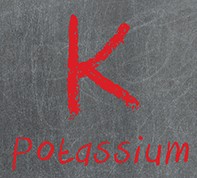Peer Reviewed
Perspectives
Hypokalaemia: common and commonly underestimated
Abstract
Hypokalaemia is common but often unrecognised and can have serious metabolic and functional effects in many organ systems. Characteristic changes appear on the ECG as hypokalaemia becomes severe.
Key Points
- Hypokalaemia is common in clinical practice and can lead to cardiac, neuromuscular and gastrointestinal abnormalities.
- Hypokalaemia is usually associated with total body potassium depletion caused by inadequate intake and/or excess gastrointestinal or renal loss.
- Occasionally, significant hypokalaemia is caused by a compartmental shift of potassium from the extracellular to the intracellular fluid caused by alkalosis, insulin or aldosterone excess.
- Severe potassium depletion (below 2.5 mmol/L) can cause ECG abnormalities, arrhythmias, weakness, rhabdomyolysis and renal tubular dysfunction.
- Hypokalaemia is often associated with other electrolyte abnormalities including alkalosis, hypomagnesaemia and hypophosphataemia, which can have other adverse effects.
Purchase the PDF version of this article
Already a subscriber? Login here.

